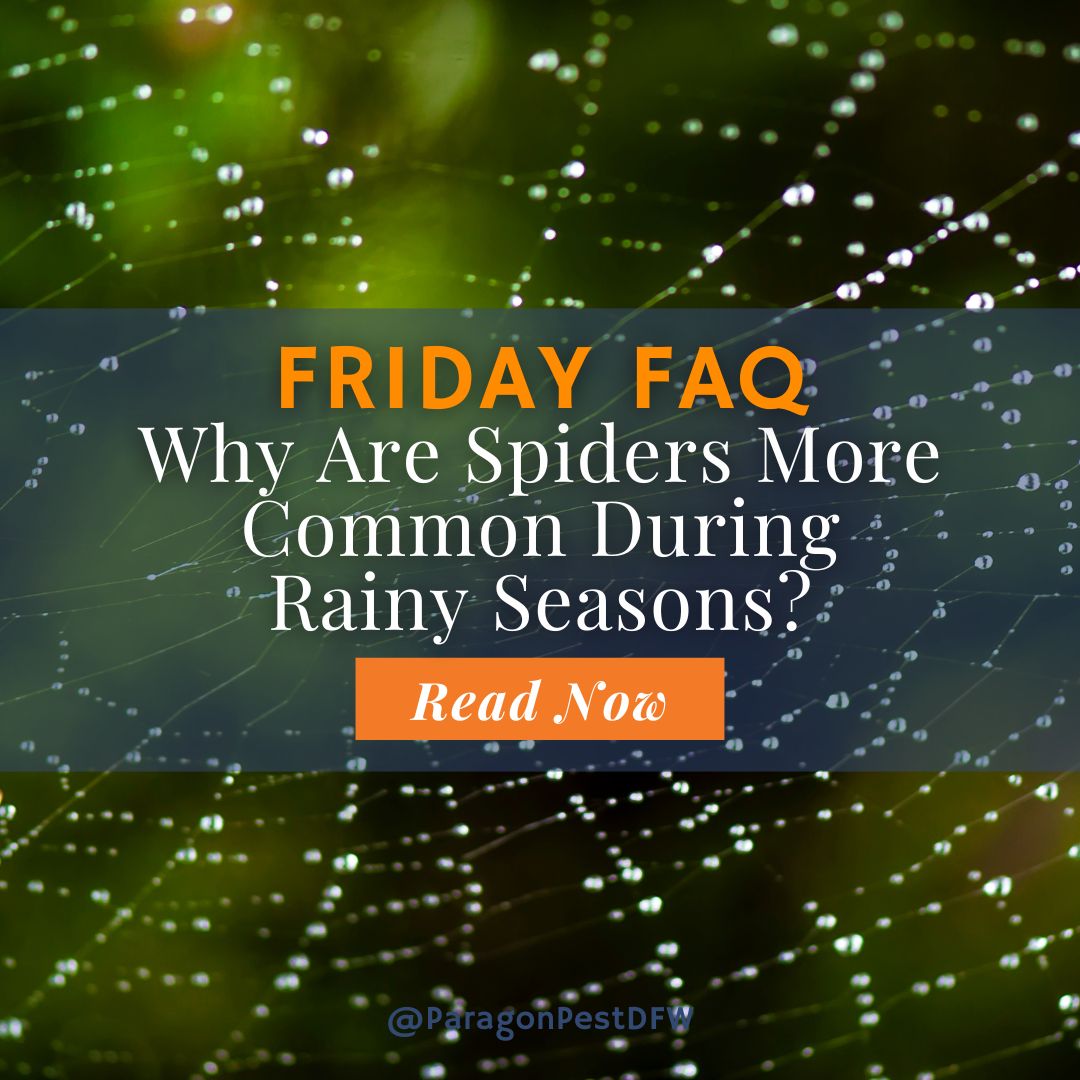Friday FAQ: Why Are Spiders More Common During Rainy Seasons?
The Question We Hear Often
After heavy rain or during wet months, many homeowners notice more spider webs around their porches, windows, and outdoor lights. So why do spiders and their webs become more common when it rains?
The Rainy Season Effect on Spiders
More Prey is Available
Rain boosts insect populations by creating damp conditions that attract mosquitoes, flies, and other pests. Spiders naturally follow the food source, building webs where insect activity spikes.
Webs Are Washed Away
Rain often destroys existing webs, forcing spiders to rebuild more frequently. This constant web-building makes them appear more active around your home.
Shelter Seeking
When the ground becomes saturated, many insects (and the spiders hunting them) move closer to human structures. Eaves, porches, and windows provide dry, stable spots to build webs.
Why It Matters for Homeowners
Increased Webs = More Spiders Nearby: If you’re seeing more webs, it means the local insect population is high.
Unwanted Guests Indoors: Some spiders may move inside during storms to escape the wet conditions.
Cycle of Activity: As long as rainy weather persists, the cycle of new webs and increased spider sightings continues.
Managing Spider Activity in Rainy Seasons
Regular Pest Control Treatments: Keep insect populations down, reducing spider food sources.
Knock Down Webs Promptly: This discourages spiders from rebuilding in the same spot.
Seal Entry Points: Caulking cracks and gaps makes it harder for spiders to move inside during storms.
Let Paragon Help Break the Cycle
More rain doesn’t have to mean more spiders around your home. Our pest control services reduce both the insects spiders feed on and the spiders themselves.


